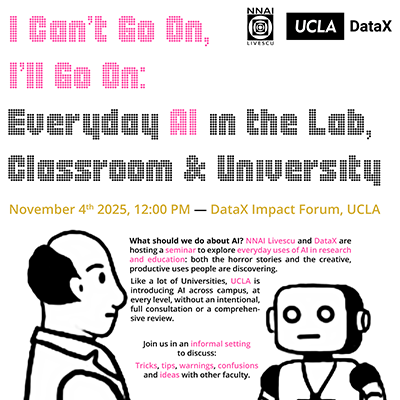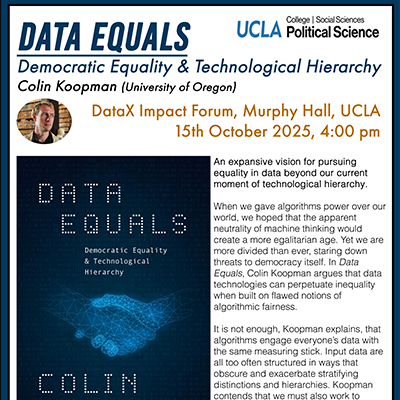I Can’t Go On, I’ll Go On: AI in the University – 2nd Edition
We are excited to share the second edition of our collaboration with DataX. Designed as stand‑alone events, these seminars retain the same topic and structure as the first edition while featuring a new group of participants who bring fresh perspectives to the conversation.










